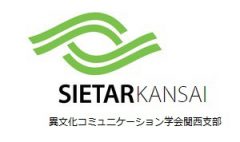Presenters: 1) Tanaka, Hiroshi
(Representative Director, the Japan Civil Liberties Union/JCLU)
2) Ryu Misa (Doctoral Student at the Graduate School of Human and
Environmental Studies, Kyoto University)
Date: Sunday, July 17, 2011, 14:00-17:00
(There will be a party at a restaurant after the meeting about 3,000 yen)
Place: Ryukoku Universiity, Osaka Umeda Campus (14F, Hilton Plaza West Office
Tower, 2-2-2, Umeda, Kita-ku, Osaka City)
Access: http://career.ryukoku.ac.jp/ossaka_campus/access/indes.html
Fee: Free
Language: Japanese
Inquiries and registration: Prior registration is requested for attendance and the party. Please send an e-mail to Soo im Lee: lee@biz.ryukoku.ac.jp, or fax to
06-6658-4642.
Description of the presentations:
(1) Tanaka,Hiroshi
“Japan’s Multicultural Co-existence Seen in the Exclusion of Korean Ethnic High Schools from the School Tuition –free program “
An act making tuitions free at public high schools and creating a “high school enrollment support fund” was passed on March 31 and was enacted on April 1, 2010.
The school tuition-free program was the only manifest that the Democratic Party of Japan could achieve. The rest of the manifest, such as children’s allowance, toll-free expressways, and financial support for farmers are still undecided.
The tuition-free school program was epoch-making because special training high
schools and schools for foreigners were included in the program. It means that
this time, these schools and Japanese public schools will be treated equally for the first time.
Of these designated schools for foreigners, 17 are international schools, 8 are Brazilian schools, and 2 are Chinese schools. 10 Korean schools were excluded from the program. Support of local governments has also eroded for these schools; for example, the Osaka Prefectural government cut financial aid, and it is affecting other local governments. I want to consider why this problem is occurring within the framework of Japan’s multicultural, multiethnic societal co-existence.
Profile of presenter:
Tanaka, Hiroshi is an Emeritus professor of Hitotsubashi University. He received his MA in Economics from Hitotsubashi University. His fields are the History of Japan-Asia Relationships and post-colonial issues.
(2)Ryu, Mie
“The heritage Language Acquisition Process of ethnic Korean School Students-
An exploratory research on the elementary school students’ compositions in
Korean and Japanese (progress report)”
For the last several decades, ethnic Korean schools have successfully conducted heritage language education for the third and fourth generations in Japan.
This bilingual education enabled children, who spoke Japanese as their mother tongue, to become almost fluent in Korean within a year, so that they could lead their school life using only Korean.
This study focuses on the heritage language acquisition process in third year elementary school students, using compositions of students written in Japanese and Korean. This is a report of the students writing ability who have been studying Korean for three years while examining what the content of the compositions reveals about the awareness of students toward these schools.
Profile of presenter:
Ryu, Misa is a doctoral student in the Graduate School of Human and Environmental
Studies of Kyoto University. Her majors are heritage language education using the immersion method and second language acquisition.
